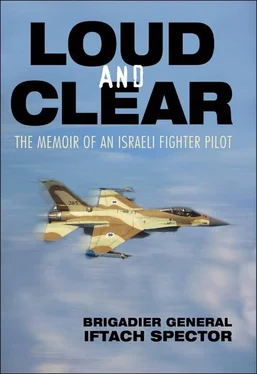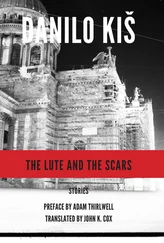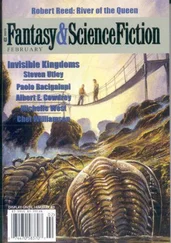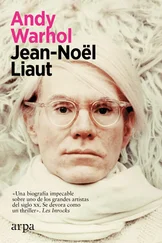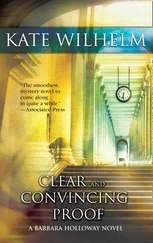Then I walked up Allenby Street, pressing my nose to the display window at Peel Shoes, then studying the jewelry and the cream cakes in the other windows along the road till I finally reached No. 78. Then I climbed up the four flights of stairs to the top, inhaling the smells of cooking potatoes and jellied meat from behind the doors. Near the topmost door stood a bottle of milk. I opened the door. Inside, after a sip, I could go hurriedly out to the flat roof and into the sun, to squash with my thumbs the softened, warm tar.
On this flat roof, on its peeling whitewashed surface, beneath the sky and among many similar roofs with thickets of electric wires and radio antennae, I built castles from leftover building blocks and planks. The sea could be seen as a blue line few blocks away, and it sent me its fresh breath. There, on the roof, I had my own kingdom. I fortified my castles and ordered my battles and told my stories until evening and the time for homework came.
‡
‡
ON ONE OF THOSE MORNINGS I became a man.
My mother entrusted me with the annual school fees, thirty Palestine pounds, a lot of money for her. The bills were to be handed to the school bursar in person. My mother stapled them to my breast pocket with a pin, exactly as in Kestner’s Emil and the Detectives , and I went out to the street happy and proud. On the way to school I passed by the blind man. I took the money out, together with the pin, and put it inside the beggar’s box.
Several days passed with no repercussions, and then my mother was called to school. She returned furious and dragged me out of bed. We searched the streets to find that blind man, but he had vanished without a trace. I was very sad that he had disappeared—it was clear he found his destiny—but I was even sadder to learn that I was just a useless parasite and was no help to our survival as a family.
For this I had a solution: on the next morning I began working and earning my living. In the evening my mother came back and found me near the Izersky Library—not far from the big synagogue and Café Brazil—with her shoeshine brush and polishes. Proudly I gave her half a pound in shillings and pennies. Only I was out of black polish, I told her. She gaped at me. Could she please get some more?
Two healthy slaps straightened me out and sent me back to the school for parasites.
THE SEMESTER WAS OVER and the summer vacation of 1947 arrived, but I lost the use of my flat roof. I was stuck inside now, for the enemy was shooting again from the nearby town of Jaffa. I spent the first week in my room, getting the full milk bottles in and the empties out and listening to the continuous chatter on the radio. Then Uncle Shaike arrived.
Shaike, Yeshayahu (Isaiah) Spector, was my father’s youngest brother. He stayed with us for couple of days. Shaike was about twenty, dark-haired and quiet, and to me he looked like a child himself. But he was a Palmach member, of the Negev brigade. He took me for a walk along the seaside, and to the Mughrabi cinema. He didn’t have enough money for the movies, but he bought us instead salted corncobs. That was fun.
On the morning after the decision of the United Nations on the partition of the country—that was on the twenty-ninth of November—there was a knock at the door. They explained to me that Shaike was needed in the Negev, where the water pipeline between Mishmar-Hanegev and Hatzerim was subject to sabotage. Shaike hurried to pack his knapsack and was gone. A few days later my mother came and told me that Shaike had been killed. She explained that now only two of the four brothers were left: Israel and Aaron (Aronchik) Spector.
Many years later I learned how Shaike died. The guarding of the water pipe was being done in small foot patrols. Due to the presence of the Brits, the military gear of the scouts was limited and consisted of wooden clubs, and some pistols and hand grenades that were hidden, taken apart in pieces, on their bodies. On December 11 a company commanded by Yeshayahu Spector encountered Arabs on the line. The molested bodies of Shaike and two of his men were returned few days later by the British. They were buried temporarily in the Negev, and later passed to a graveyard. The other two were missing and their fate unknown. Shaike and two of his men were members of Amelim (workers), a youth group preparing to settle in the mountains of Jerusalem and raise a new kibbutz, to be called Tsuba.
THE SUMMER WAS ENDING, as well as with the peaceful days when I was permitted to walk down Geula Street to the sea, barefoot and wearing only my bathing suit. Bullets were whistling over the city. During the day I was kept locked in the apartment, and in the evening the city was under curfew. At night, only the tires of the British armored cars were heard, whining on the asphalt. Their headlights painted passing squares of orange on the ceiling of my room. Sometimes a single shot was heard, or the mad shout of somebody down in the street. Shosh vanished. She worked and slept at Palmach headquarters in Beit Romano house in the south of the city. Suddenly she would appear, sleep like the dead, and vanish again. The radio said all kinds of fearful things. Some nights there were shots fired from nearby Jaffa. I knew, as did everybody else, that the Palmach was aligning itself clandestinely to face the expected great Arab assault. I expected my father to come back, take his place, and change everything.
One morning I was alone at home. Somebody knocked on the door. I opened it, and my Uncle Aronchik entered. He was the third brother, the one between my father and Shaike. Aronchik was the tallest and most good-looking of them, and his smile was charming. He presented me with a sheet of Syrian ledder, an almost forgotten sweet made of pressed apricots. We packed a backpack for me. Down the stairs, a large BSA motorcycle was waiting. Aronchik sat me on the fuel tank in front of him. We chugged noisily northward, crossing hills and passing towns. The wind sent insects flying into my face and chest. The one thing I recall from this trip was the fuel tank—black, shining tin, and on its face a white indicator hand quivering over a green and red arch.
In the evening we came down the mountain past Safed on the twisting, potholed road, and reached Hulatta. Immediately I joined the kibbutz’s first class of children.
ARONCHIK AND HIS GIRLFRIEND, Dvorah, lived in a plywood barracks at the lower camp, the initial settlement. This camp stood on a thorny, rocky hill, few dozen meters from the lake shore. I see them both there in a small photo from that time. It is a gray postcard with scalloped edges, as was common at the time. They are very young. They stand erect and serious, close to each other, as if to stress their kinship. Behind them, out of focus, is the barracks. They live behind one of its four doors. Each door has one room behind it. In the background of this photograph, the blurred vista of the Syrian Golan mountain range looms up, like a dark and barren wall, cracked and dotted with stains of remote vegetation. The picture radiates a feeling of disquiet, as if it were underwater or in shadow. Perhaps this feeling ensues from the fact that this was 1947, and it was all about to happen. And perhaps there was another reason. Maybe the anonymous photographer instilled into this photograph his own feeling of confinement, with another mountain ridge towering behind him. Indeed, Hulatta was imprisoned inside a long and narrow valley. Chains of mountains rose above it on both sides, and on each of them sat enemies: the Syrians on the Golan Heights on the east, and the Lebanese on Naphtali Ridge on the west. North of the valley, those two ridges converged at the nine-thousand-foot-high, snowcapped Mount Hermon. On Dvorah’s lips I see, or imagine seeing, a slight smile. Her eyes—the real and the glass one—look directly into the camera, straight and bright and brave as they were all her life, until the night she died.
Читать дальше
